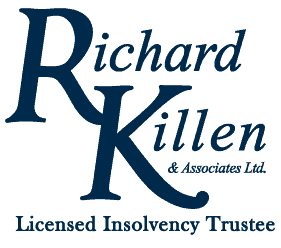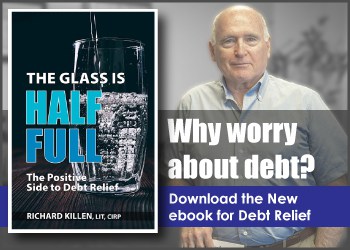A consumer proposal and your home
 The major difference between a consumer proposal and a bankruptcy in Toronto is what happens to people’s assets, especially those who own their own home.
The major difference between a consumer proposal and a bankruptcy in Toronto is what happens to people’s assets, especially those who own their own home.
Even when faced with the likelihood of having to do a bankruptcy or a consumer proposal, most people who own their own place would prefer not to lose it. It’s fair to say that in a consumer proposal you only give up your assets if you want to. The thing is, in a consumer proposal you will be offering your creditors money, usually through a monthly payment plan, to compensate them in a better way than a bankruptcy. Your assets will remain “off the table”, so to speak.
For instance, if someone owns a house which has some equity in it, they may be well advised to offer their unsecured creditors a reasonable proposal so that they don’t risk losing their house by being sued by those unsecured creditors. Often a consumer proposal is the absolutely best way to ensure that you can keep your home.
Even when you have enough income to make your mortgage payments, if you can’t also keep your credit cards and other unsecured debt payments up to date, those creditors will eventually take legal action against you. If they are successful and get a judgment against you, they would be able to use that judgment to eventually seize your property in order get their money.
When you file a consumer proposal with Richard Killen & Associates, it will prevent that from happening. It will allow you to make a new deal with those unsecured creditors so that, even though it may not pay them back completely, it will work better for both the creditors and for you. And it will save your house.
What such a deal would consist of depends on a lot of different factors which we can’t enumerate here, but that’s what you go to Richard Killen & Associates for. Remember the consultation is absolutely free.
Richard Killen, CIRP
Consumer Proposal Explained
Toronto Licensed Insolvency Trustee Richard Killen explains what a consumer proposal is
Consumer Proposal Rejection?
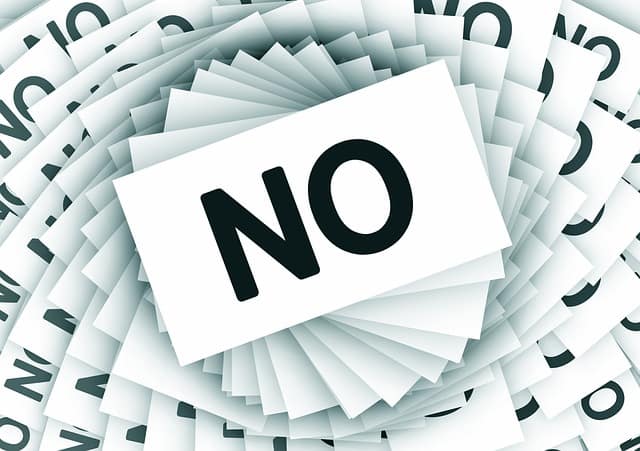 So the consumer proposal that you’ve filed in Ontario will soon be presented to your creditors. You’ve worked with a Licensed Insolvency Trustee, such as Richard Killen & Associates, to come up with a reasonable payment plan for your debts They helped you fill out the necessary forms and filed them for you with the Official Receiver.
So the consumer proposal that you’ve filed in Ontario will soon be presented to your creditors. You’ve worked with a Licensed Insolvency Trustee, such as Richard Killen & Associates, to come up with a reasonable payment plan for your debts They helped you fill out the necessary forms and filed them for you with the Official Receiver.
Protections are in place
As soon as the consumer proposal is filed a legal protection goes into place – automatically. This means that none of your creditors can start, or continue, any collection effort against either you, or your property. In other words, all your creditors must direct their attention to your proposal, through the trustee. (In a consumer proposal the trustee’s title becomes “administrator.”)
Like most things in the law, there is an exception to this general principle. In this case a secured creditor, like a mortgage holder, can enforce his security rights under his contract with you. So if you wanted to keep your house or car, you would have to keep up your payments, or the creditor would have the right to repossess it from you. So that creditor can’t be included in your proposal.
But, as far as regular, unsecured creditors, you don’t make any more payments towards those debts because they will get paid through your consumer proposal. There is no point in their continuing to write to you, call you, demand payments from you, put the account in collection, garnishee your wages and so on, because the proposal has taken over your obligations to them.
So you’ve filed. What happens next?
Once the proposal is filed, the administrator must tell your creditors about it. A copy is sent to all of them and they are invited to file a claim to let you know, within 45 days, whether they are in favour of your offer or not. If they are, which is what normally happens, then you’ve got a deal. If not, we will have to have a meeting with the creditors, where everything can be discussed and eventually voted on.
To be approved at a vote, all it takes is a simple majority. The creditors get one vote for every dollar you owe them. That means the larger creditors are more important than the little ones. To be accepted your proposal must get 50% plus one vote.
Wondering what your chances are that the creditors will accept the proposal?
Your chances are good
While we cannot guarantee that any proposal offer will be successful, the vast majority of these legally binding settlements that we negotiate are accepted. The trustees at Richard Killen & Associates take a lot of time and effort to understand your situation – including what level of payments you can afford – and have a lot of experience in dealing with creditors. We generally know what they are likely to accept. In short, we listen to them and we listen to you, and then help you craft a compromise that both you and your creditors can live with.
Why not handle it yourself?
The big advantages of doing a consumer proposal instead of handling negotiations with creditors yourself are:
- The filing of the proposal takes away the creditors’ other options; they must come to the table.
- You don’t have to get everybody to agree. The majority rules.
- A proposal works with all your creditors collectively.
- You don’t have to pay 100% of the debt. You can reach a compromise amount.
If the creditors representing the majority of the dollar value of your debt vote to accept the proposal, then it will become legally binding on all the creditors (and you).
Initial rejection is not the end
Though it is not a great sign, a rejection of your proposal, along with a subsequent meeting, is just part of the process. It usually means the creditors want you to offer more money, but this amount is still under negotiation. You still have the opportunity to make a deal. The trustee will continue to work with both sides to come up with an acceptable compromise. Often by adding a few dollars to the monthly payments, or by extending the payment period by a few months, the creditors will be satisfied.
So, is a proposal better than bankruptcy?
That is a good question. We get asked it a lot.
Very few people want to go bankrupt. They do so because they have to. Doing a proposal avoids bankruptcy, but whether it is the right move depends on individual circumstances. Only you can really answer that question.
For the creditors, it usually boils down to how much money they will receive. Creditors are keenly aware that what’s been offered them is better than what they’d receive in a bankruptcy. They know that if they come back and ask for too much more money that they may make you believe that a bankruptcy is the better way to go. They don’t want that either.
Whether a proposal or a bankruptcy is the right way for you, is something you need to discuss with the trustee. That’s what we at Richard Killen & Associates are here for. Call us.
And again, don’t worry too much. At the end of the day, most reasonable consumer proposals in Ontario are accepted.
Who Does a Bankruptcy Trustee Work For?
 We’re often asked by people who consult us: “Whom do you work for, the creditors or me?” The answer is: neither and both. To do our job properly, we need to work with both parties.
We’re often asked by people who consult us: “Whom do you work for, the creditors or me?” The answer is: neither and both. To do our job properly, we need to work with both parties.
To be clear, a bankruptcy trustee is an officer of the court. We are licensed by the the Superintendent of Bankruptcy to act in a fiduciary capacity for all the participants, whether in a bankruptcy or a proposal. Fancy words, but what it means is that we are there to protect the interests and legal rights of both the debtor and the creditors.
So while we don’t in fact work for you, we do work with you to ensure that you can find the best solution for your circumstances.
When we first get together, during a free consultation at Richard Killen & Associates, we will ensure that you understand all your options. The most important thing we can do here is explain what the probable consequences will be for each of the options available to you. Only a trustee can do this comprehensively and effectively – probably because the trustee is the one who will be doing the actual work involved.
If you decide things will go forward after the free consultation, we’ll do all the necessary paperwork to get things started. After that, we will work with you and your creditors to administer the process in a way that is fully compliant with the law, so that you – and the creditors – get the full protection of that law.
So, even though the trustee doesn’t actually represent you the same way a lawyer or other professional does, he provides you with the best protection the law can supply and ultimately gets you to the destination you were seeking when you made your decision in the first place. That’s a lot to pack into a free consultation, isn’t it? Call Richard Killen & Associates and find out more.
What Happens If You Default On A Consumer Proposal?
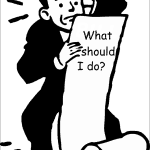 Do you have a consumer proposal that you are struggling to pay and you are wondering “What happens if you default on a consumer proposal”? As a rule, it’s not good to default on any kind of debt.
Do you have a consumer proposal that you are struggling to pay and you are wondering “What happens if you default on a consumer proposal”? As a rule, it’s not good to default on any kind of debt.
A proposal for an individual – most commonly called a “consumer proposal” – is one of the two ways of addressing a severe debt issue under the Canadian Bankruptcy and Insolvency Act. The other, of course, is bankruptcy.
Using the services of a Licensed Insolvency Trustee, like Richard Killen & Associates, a consumer proposal is a deal that you strike with your creditors to pay back part or all of what you owe, according to your means, either through a lump-sum payment or, more likely, a series of monthly payments. As long as you make the required payments, your creditors can take no action against you.
Once all the payments are made, you are freed from the spectre of your debt.
However, what happens if you miss some of the payments agreed upon in the proposal?
Since the proposal is a legally binding agreement, this would be a serious situation. If you fail to meet the terms of your proposal, especially by missing three months of payments, the consumer proposal is annulled automatically. (You can miss up to two payments without triggering the consumer proposal annulment. The missing payments will be tacked to the end of your term.)
And what happens after a consumer proposal is annulled? Well, your creditors are free to once again start collections and/or take legal proceedings against you. And you may be faced with bankruptcy.
If you start falling behind in your proposal payments and you know that your shifting financial situation is going to make it hard to make them up, then you need to see your trustee and review your situation. You might be able to amend the proposal and solve the problem that way. You might have other options, but you’ll need to see the trustee. He or she can tell you what you need to know.
But fair warning: if you amend your consumer proposal, it will mean that your original one no longer applies. Your amended proposal will have to go through the creditor approval process again, and if your creditors refuse the amended version, you cannot just go back to the original terms.
This is why we at Richard Killen & Associates believe it is critical that we sit down with you at the beginning of the process and work out reasonable terms for a consumer proposal. That is the only way you can have peace of mind knowing that you are getting your financial life back on track – one payment at a time. If you are at the point where you are asking what happens if you default on a consumer proposal, it’s time to talk to a licensed trustee before you default.
10 Signs of Debt Trouble
 If you don’t live in Egypt, being in denial is a bad thing.
If you don’t live in Egypt, being in denial is a bad thing.
Most of us carry some form of debt, whether it’s a car loan or a credit card balance that we just can’t manage to pay off this month. But when does debt load become dangerous?
Well, one sign is when you don’t want to think about it and are kept up nights with stomach-twisting anxiety. The problem scares you so much you put your head in the sand and keep spending as usual.
If you think you have a problem, you probably do. But here are 10 more telling signs that you are sinking too far into a financial morass:
- You frequently pay bills after their due date, incurring secondary notices and penalty charges.
- Creditors are calling about unpaid bills.
- You regularly bounce cheques and overdraw your bank accounts, causing you embarrassment and triggering bank penalties.
- You use one credit card to pay the balance on the other, or use it to pay other bills or to buy necessities.
- You pay only the minimum balance on credit card bills.
- You’ve been denied credit because your debt ratio is too high, or need a co-signor for a loan because you are too much of a risk by yourself.
- You hit up family and friends for loans to make ends meet.
- You don’t know how much debt you’re really in, because you’re afraid to hear the number.
- You hide purchases and debt problems from your family, or you fight a lot with your spouse over debt issues.
- An unexpected expense, such as a car repair, sends you into panic mode.
Of course, just not thinking about money problems, or running way from them, doesn’t work. They always manage to find you. The best way to deal with them is head on, using the advice of a trusted expert. At Richard Killen & Associates, we can lead you through the appropriate responses to your particular situation, whether it is debt consolidation, a consumer proposal or bankruptcy.
Contact us for a free consultation – it will be the most stress-relieving call you will ever make.
Are We Going to be Homeless?
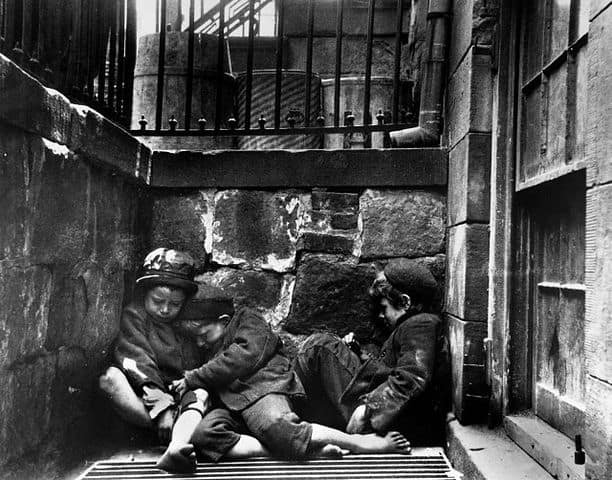 Hi. I’m Richard Killen from Richard Killen & Associates. Richard Killen has offices across the GTA. One of the most frequently asked questions I get as a Licensed Insolvency Trustee is, “If I go bankrupt or do a consumer proposal, will I lose my home?”
Hi. I’m Richard Killen from Richard Killen & Associates. Richard Killen has offices across the GTA. One of the most frequently asked questions I get as a Licensed Insolvency Trustee is, “If I go bankrupt or do a consumer proposal, will I lose my home?”
Well, probably not. Sounds evasive, doesn’t it? But it isn’t really. A bankruptcy or a consumer proposal is a legal process, so there are no guarantees. But my experience is if they want to most people keep their homes in a bankruptcy or proposal.
The problem is, people hear so many misleading things out there that they shy away from consulting a trustee like Richard Killen & Associates. They shouldn’t, because a trustee is the only one who can tell them what will happen in their specific case.
So call Richard Killen & Associates today for a free consultation at our office nearest you, 888-545-5365, or visit us online at killen.ca. It may be the most stress-relieving call you ever make.
Consumer Proposal Meaning- What Is a Consumer Proposal?
People often ask, what is a consumer proposal what is the consumer proposal meaning or definition and how similar is it to a debt consolidation loan? A proposal is like a consolidation loan where your payments are made affordable and downgraded into a single monthly payment term. You can make the payments to a trustee who accumulates them and pays the money out to your creditors every six months.
Consumer Proposal Meaning & Consumer Proposal Definition
A proposal is a debt settlement agreement that you can do with a Licensed Insolvency Trustee.
The thing about it is that it does not necessarily involve paying back 100 percent of what is owed to the creditors. Many times the total amount owed can be reduced by 50% or more. It involves making a new deal with creditors so that they get paid to the best of your ability.
The major difference between an informal arrangement with creditors and a proposal is that the latter has the protections that are built into the law. You are protected by the law until it is determined that the creditors will or will not accept your proposal. They still have the option of turning you down but no one can take legal action against you. However, if you are under an informal agreement, the creditor who does not approve with the arrangement can still sue you, garnishee your pay and seize your assets.
What happens in the proposal?
A consumer proposal can be a solution to avoid bankruptcy if you are having difficulties with your debt payments. Your trustee will review your situation with you and help you determine the best payment term for your financial problem. The settlement will depend on your income and personal assets. The term can cover an interest-free payment of up to 5 years which can lead to bigger savings. A consumer credit proposal can work with various unsecured debts such as bank loans, tax debt, and credit card debts as well as student loan debt.
How will you know that you are eligible for a consumer proposal?
First of all, you need to make sure that you can make payments for a portion of your debts. Secondly, your assets must be of lesser value than your debt which shows the reason why you are not able to keep up with the payments. You must also be a resident of Canada to qualify. Take note that a proposal is regulated by the federal government and you must comply with all of the requirements.
What are the benefits of Consumer Proposals?
Aside from being able to avoid bankruptcy, it can help you save money by reducing your debt by a significant amount and by stopping the interest rates. This way, you can keep your properties. You also do not have to make multiple payments—this will combine your debt into a single monthly payment. Besides, your creditors will have to follow your terms and stop wage garnishments. This is instant protection from the creditors and collection agencies who must stop chasing you for payment.
A CP can be the most effective solution for your financial situation. Legal consumer proposal services can only be provided by a Licensed Insolvency Trustee or a licensed consumer proposal administrator. They will help you understand your debt relief options and help you manage your debt problems. You can book a free consultation with a trustee.
Now that we have answered the question “What Is a consumer proposal?”, you now have a much better understanding of the consumer proposal meaning where you pay only a portion of the debt owed with no interest versus a debt consolidation loan where you pay back 100% of the debt owed, plus interest.
Will I Lose My Home in a Bankruptcy?
 The fear of losing your home is a powerful one. When their finances go south, many imagine that bankruptcy will leave them homeless. Is this fear justified? Not really, or not in the normal course of a bankruptcy.
The fear of losing your home is a powerful one. When their finances go south, many imagine that bankruptcy will leave them homeless. Is this fear justified? Not really, or not in the normal course of a bankruptcy.
Yes, when you go bankrupt, you give control of your assets to a trustee in exchange for getting rid of your debts. This, in theory, could mean that the house gets sold to help pay back the creditors. But in practice this rarely happens, mainly because it is not in the best interests of everyone involved. The trustee has a lot of discretion, which he or she generally uses to safeguard the rights and interests of both the creditors and the debtor. Selling the house outright usually doesn’t achieve this purpose. So what normally happens?
Well, there are many different scenarios. If you have no realizable equity in the house – equity is the amount you’d get selling the house after deducting the mortgage and other associated costs – there is no point in selling the house, because all the money would just go to pay off the mortgage(s). In this case you get to keep the house as long as you keep paying your mortgage. The trustee doesn’t get involved.
But, what if you did have some equity, say roughly $20,000? To keep the house, you would have to pay the trustee this amount, because that’s what the creditors would have received if the house had been sold. So the creditors end up getting their fair share and you keep your house.
Yes, but if you had $20,000 to throw around, you wouldn’t be bankrupt in the first place, right? Well, you would have to raise the money, but the trustee would work with you to accomplish this. For instance, you might be able to get the money through a second mortgage. Or you could work out a direct monthly payment plan with the trustee. In either case, you would keep your house.
Where things start to get more complicated is if you have a significant amount of equity in the home, let’s say $100,000. In order to hang onto the castle, you would have to pay the trustee 100 large – a whopping sum, but not impossible and financing is usually obtainable.
But, in such a case you probably would want to explore the legal alternative to bankruptcy: a consumer proposal. If you go this route, you don’t risk losing the house. You simply offer the creditors a settlement, negotiated by your trustee under the protection of the law. Most often this solution satisfies everyone because it pays the creditors an acceptable sum while allowing you to escape the debt quagmire in an orderly and manageable way: win-win.
There are a couple of other points to understand when you’re dealing with the house question.
The first is that in all these scenarios the trustee will remind you of your right to get advice from a lawyer of your choice, someone who is there to protect specifically your interests. This is your basic legal right, but it becomes much more important if you have a lot of equity in your home. A good lawyer will help you deal with the situation and probably get you a better deal from the trustee and creditors than if you were doing this on your own.
The second point is that you should ask yourself: Whether I go bankrupt or not, can I afford to keep the house? If I try to hang on to it will it just drag me back into debt trouble down the line?
This is a tough one. We tend to be emotionally attached to our house in a way that we aren’t with most other things, even our cars. But, we have to ask ourselves this question if we’re going to regain control of our finances. The trustee can help you better understand your situation, but the answer to this question can only come from you. And you need to be brutally honest with yourself about it.
So, to get back to the original question: “If I go bankrupt will I lose my house?” For most people (the vast majority) the answer is “No!” So don’t be afraid to consult a trustee because you’re worried about losing the house. Contact us and get the facts. Remember our TV commercial: “It may be the most stress-relieving call you ever make.”
Consumer Proposal or Bankruptcy?
 If you are coping with severe debt problems, you have five choices to deal with the crisis: Get a consolidation loan, try to negotiate with your creditors, run away, do a consumer proposal, or go bankrupt.
If you are coping with severe debt problems, you have five choices to deal with the crisis: Get a consolidation loan, try to negotiate with your creditors, run away, do a consumer proposal, or go bankrupt.
The first three options you can handle yourself (we don’t recommend trying to run from your problems; they have a nasty habit of catching up). Personal bankruptcies and consumer proposals are solutions governed by the Bankruptcy and Insolvency Act, and they can only be handled by Licensed Insolvency Trustees.
So why would you choose one of the legal solutions over the other? Well, every person’s case is different, so you need to come into a trustee to get advice tailored to your particular situation. But painting with broad brushstrokes, a bankruptcy is a faster and less expensive process, whereas a proposal may protect more of your assets and save your name from being associated with bankruptcy.
With a personal bankruptcy, you are released from your debts after you comply with certain duties. It’s a process that can be over in as little as nine months. Some of your assets would be exempt from this legal process – such as furniture and personal effects – and others would be handed over to the trustee and be used to repay creditors.
This latter category could include houses, high-worth cars, jewelry and certain RRSPs. Also, if you have an income over a certain set amount, you would have to pay 50% of this surplus to creditors, probably lengthening the time you were discharged from the bankruptcy.
A consumer proposal essentially reorganizes your debts. If the proposal is accepted by your creditors, you only have to make one manageable payment a month to the trustee. The length of term for a consumer proposal is five years or less, depending on fast you want to and are able to address your obligations. But generally speaking, it’s a longer more expensive process that a bankruptcy.
With the proposal you avoid the ‘stigma’ of bankruptcy and get to keep all your assets, providing you make your monthly payments and don’t slide into bankruptcy anyway. You may also want to consider a proposal if bankruptcy would also force your spouse to follow the same route, or if you are expecting to receive a large sum of money down the road.
Also, with a bankruptcy, you must complete a monthly budget for all income and expenses, as well as supply copies of your pay stubs to the trustee. If your income goes up during the period of your bankruptcy, then your surplus payments would also increase. With a consumer proposal, there are no monthly reporting requirements.
